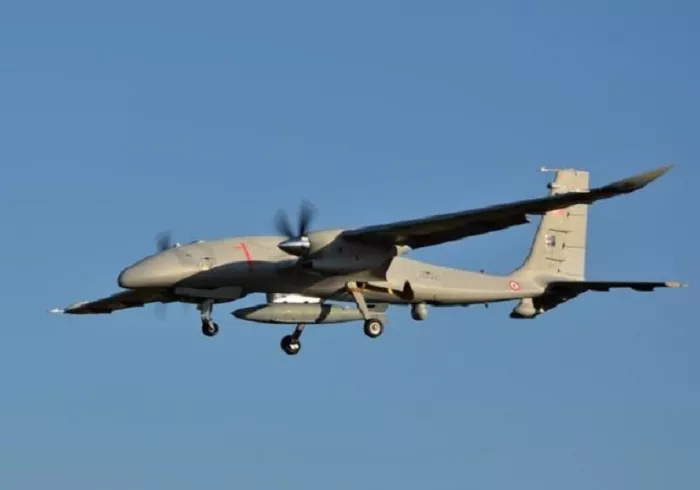The Bayraktar Akıncı is a high-altitude, long-endurance unmanned combat aerial vehicle (UCAV) developed by the Turkish company Baykar. As of 2025, it stands as one of the most advanced drones in the world, offering a blend of speed, payload capacity, and cutting-edge technology. This guide delves into the top speed of the Akıncı, its specifications, and its role in modern military operations.
Overview of the Bayraktar Akıncı
The Akıncı represents a significant leap in drone technology, designed to perform both reconnaissance and combat missions. It is equipped with sophisticated avionics, sensors, and weapon systems, making it a formidable asset on the battlefield.
Key Specifications
- Maximum Takeoff Weight: 6,000 kg
- Payload Capacity: Up to 1,500 kg
- Wingspan: 20 meters
- Length: 12.2 meters
- Height: 4.1 meters
- Service Ceiling: 12,000 meters (approximately 40,000 feet)
- Endurance: Up to 24 hours
Top Speed of the Akıncı
The Akıncı is powered by two AI-450T turboprop engines, each producing 450 horsepower. This propulsion system enables the drone to achieve impressive speeds:
- Maximum Speed: Approximately 195 knots (360 km/h)
- Cruising Speed: Approximately 130 knots (240 km/h)
These speeds allow the Akıncı to rapidly reach operational areas and provide timely intelligence and support during missions.
Avionics and Sensor Suite
The Akıncı is equipped with a range of advanced sensors and avionics, enhancing its operational capabilities:
- AESA Radar: Provides high-resolution imaging and target tracking.
- Synthetic Aperture Radar (SAR): Enables ground mapping and moving target indication.
- Electro-Optical/Infrared (EO/IR) Cameras: Allow for day and night surveillance.
- Electronic Warfare Systems: Enhance survivability against enemy defenses.
- Satellite Communication (SATCOM): Ensures long-range control and data transmission.
Armament and Payload
The Akıncı can carry a diverse array of weapons, making it versatile for various combat scenarios:
- MAM-L and MAM-C: Precision-guided munitions for ground targets.
- TEBER and HGK Kits: Convert conventional bombs into smart munitions.
- SOM Cruise Missiles: Long-range missiles capable of striking high-value targets up to 275 km away.
- Bozdoğan and Gökdoğan Missiles: Air-to-air missiles for aerial engagements.
With nine hardpoints (one internal and eight external), the Akıncı can carry up to 1,500 kg of mixed ordnance, providing flexibility in mission planning.
Operational History
Since its induction into the Turkish Armed Forces in 2021, the Akıncı has been deployed in various operations:
- Search and Rescue: Played a critical role in locating the crash site of a helicopter carrying Iranian President Ebrahim Raisi in May 2024.
- Disaster Response: Participated in relief efforts following the 2023 Turkey-Syria earthquakes, providing aerial surveillance and coordination support.
- Combat Missions: Engaged in operations against insurgent groups, demonstrating its precision strike capabilities.
As of March 2025, the Akıncı has surpassed 100,000 flight hours, underscoring its reliability and operational effectiveness.
Global Operators
The Akıncı’s advanced capabilities have attracted interest from several countries. As of 2025, operators include:
- Turkey: Primary operator with multiple units in service.
- Pakistan: Acquired 6-7 units in early 2023.
- Libya, Ethiopia, Azerbaijan, Burkina Faso: Each has integrated the Akıncı into their respective air forces.
- United Arab Emirates: Received deliveries in late 2024.
Future operators are expected to include Saudi Arabia, Indonesia, and Kyrgyzstan, reflecting the drone’s growing global footprint.
Conclusion
The Bayraktar Akıncı stands at the forefront of unmanned aerial technology in 2025. Its combination of speed, endurance, payload capacity, and advanced systems make it a formidable asset in modern warfare. With a top speed of approximately 360 km/h and a cruising speed of 240 km/h, it can swiftly respond to emerging threats and provide sustained support across various mission profiles.


